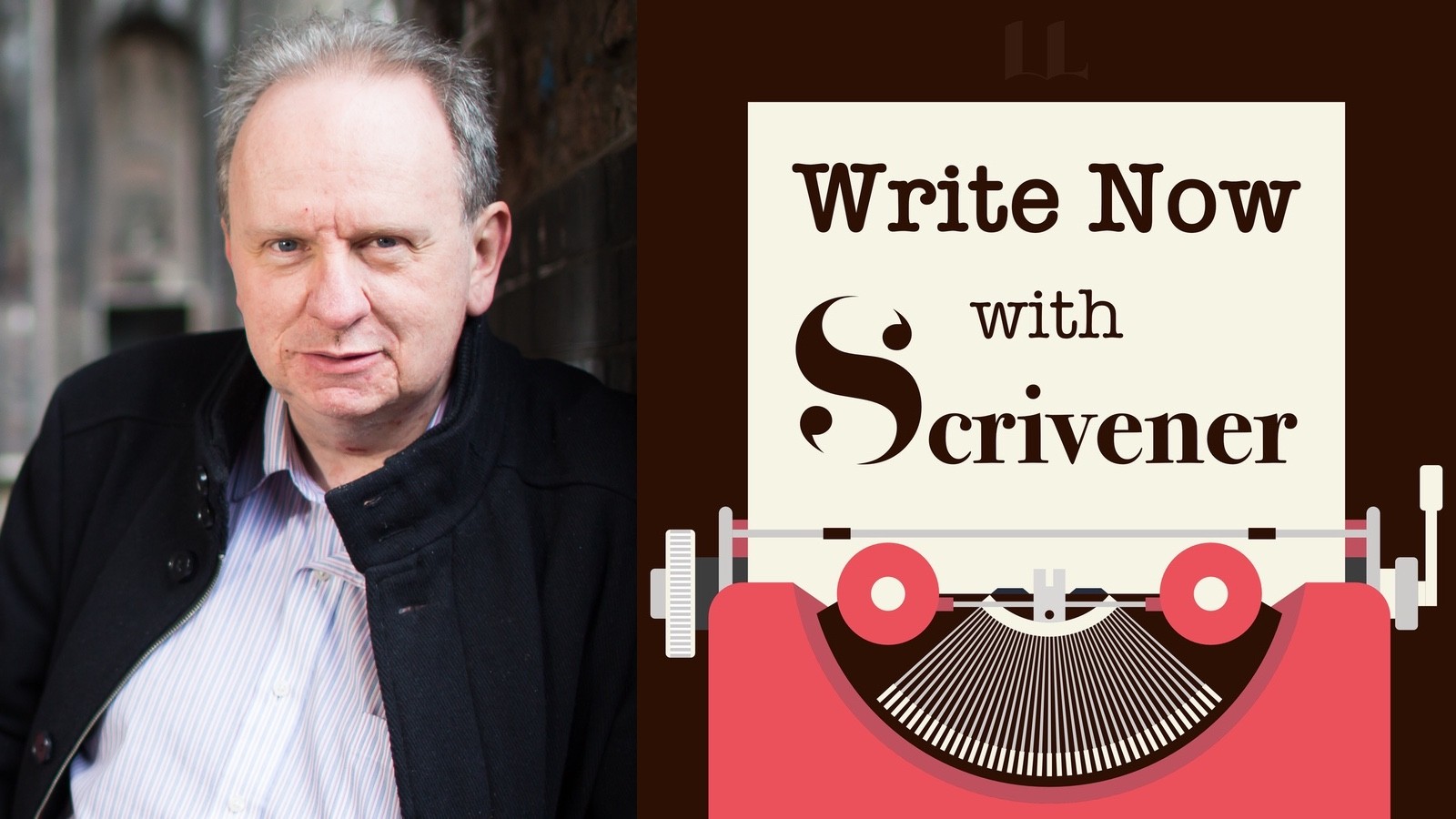William Gallagher is a versatile writer, having written Doctor Who radio dramas, novels, and hundreds of articles about technology.
Write Now with Scrivener, Episode no. 16: William Gallagher, Playwright, Novelist, and Tech Journalist

William Gallagher is a versatile writer. He has written Doctor Who radio dramas, novels, and hundreds of articles about technology, as well as books about writing. He also creates many YouTube videos about writing and technology.
Show notes:
- William Gallagher
- 58keys, William Gallagher's YouTube channel
- Three-Biscuit Guide to Scrivener (one-hour video looking at Scrivener's features)
- Jane Austen, Lady Susan
Learn more about Scrivener, and check out the ebook Take Control of Scrivener.
If you like the podcast, please follow it in Apple Podcasts or your favorite podcast app. Leave a rating or review, and tell your friends. And check out past episodes of Write Now with Scrivener.
William Gallagher has written a lot. In a several decade career, he's written novels, short stories, and hundreds of articles, and he's also written a lot of plays, and notably Doctor Who radio plays. "I identify as a script writer," he told me. "That's how I put it. Whatever I'm writing, I think of it as dialogue. So even my factual articles, I don't say they're chatty and in the formal way, but they flow you can read them."
Dialogue and character are important in all types of fiction, but especially in plays and scripts, where there's not much else. "I think in characters and through dialogue, more than anything else. If I don't believe the dialogue in a character, I don't believe the character. And if I don't believe the character, then I don't care about them."
Gallagher covers a wide palette of different types of writing. I asked him if he found that they all fit together, or did he think differently for each one. Do they all fit into his style of writing? "I would like to say, yes, there's also a part of me that thinks, am I just not any good at any of them. But I have to keep doing all these different things."
When you write fiction, you're thinking about everything that goes around the dialogue. You're thinking about descriptions, you're thinking about feelings and atmosphere. So how is that different when you're writing a script, and you can basically drop away all of that?
"I read a script every day, mostly for fun. I've read scripts all my life, but I read one script a day regardless, and I learn from it particularly in from what I think are bad scripts, which try not to get rid of that stuff. They overload it with detailed descriptions, and there are times when I've just given up reading them, as actors and directors do sometimes. And yet, actually, if you are writing your dialogue, just so you can convey the picture you want."
Gallagher has been using Scrivener since around 2010. I asked whether he writes all of these different types of works in the same way in Scrivener. "There are certain things that feel right in Scrivener. I wrote a 150,000-word nonfiction book in Scrivener. I think there were 40 interviews. I was terrified of introducing somebody twice, so could I just see chapter 3 and chapter 29 together and just see how I did it? That slicing and dicing of Scrivener is gold."
William Gallagher uses Scrivener on his iPad and his Mac. He likes to keep different projects on different devices, he especially likes Composition Mode, which allows him to block out everything but his writing. "The ability to just get on with this focus mode, and which is fine for everything outside the thing you're writing, it gets rid of interruptions. But even in the thing you're writing, I have so many drafts of different things in Scrivener, I could even hide the binder, just have what I'm writing right now. That's weirdly relaxing."
We talked a bit about his work writing Doctor Who radio plays. In a series that long, I wondered what it was like to have to adapt to an existing universe and create something that doesn't fork the universe in any way. "Well, Doctor Who allows for a lot of forking. I remember, at one point, Doctor Who fans worked out that Atlantis has been destroyed six different times in Doctor Who, in totally different ways. I wouldn't ever go into a story deliberately wanting to contradict something; that that just feels wrong as a viewer as a listener. But the joy of having these existing characters, and then your own."
Gallagher discussed what it's like pitching stories for a show like this. Once, he had a story idea that he thought was perfect so he sent a one-page outline. "And they emailed back my script in seconds saying, "We'd love this idea so much. We did it 15 years ago." And I looked it up, and the title of that other one was one word different to mine. Trying to find something new in Doctor Who is very hard. When you do, you have a Doctor, you have a companion, and everybody knows them, you've got to get those right. But everything else is yours. So in a way, it feels quite free. Get the Doctor somewhere, and then it's all yours. Don't worry too much about what comes before or after in Doctor Who history. The TARDIS is a vehicle for getting you into trouble. And trouble is what I think drama is about. So I'm very happy doing this."
Kirk McElhearn is a writer, podcaster, and photographer. He is the author of Take Control of Scrivener, and host of the podcast Write Now with Scrivener.

